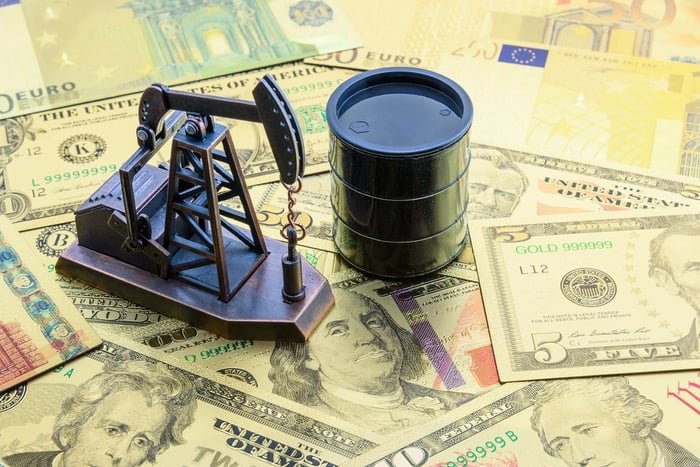The country that invented “flight shaming”, a concept championed by climate activist Greta Thunberg, has scrapped its air tax in a bid to boost its ailing economy.
As of July 1, Sweden has dropped the levy of 76–517 kroner (£5.50–£37.40) per passenger per flight, an eco measure introduced by the centre-left government in 2018.
The U-turn will be seen as a disaster by environmentalists, and it exposes a tension at the core of the aviation versus climate debate. When jumbo jets disappear emissions drop, but other things begin to dwindle too: regional growth, connectivity and – it appears in Sweden – public support for eco concerns.
The emptying of Swedish skies
Sweden introduced its air tax in the same year that a 15-year-old Greta Thunberg organised her first solo climate protest outside Swedish Parliament.
In a short period of time the “flight shaming” (“flygskam”) movement took hold. A survey in 2019 showed that nearly a quarter of Swedes were abstaining from flying in a bid to reduce their climate footprint, up from 17 per cent the year before.
The impact on Sweden’s aviation industry was stark. Swedavia AB, which runs 10 Swedish airports, saw passenger numbers drop for seven consecutive months in 2019. The country witnessed its slowest growth in airline passenger numbers for a decade. Meanwhile, state train operator SJ saw passengers leap to 32 million citing “big interest in climate-smart travel.”
In the seven years that followed, international flights dropped by a third. Smaller airports, particularly in the wild and remote northern regions, saw fewer arrivals as airlines scaled back operations. Ryanair ceased all domestic flights in Sweden, while the domestic-focused Bromma Airport near Stockholm came to the brink of closure. Today, only one regional airline, Västfly, still uses the airport.

Sweden introduced its air tax in the same year that a 15-year-old Greta Thunberg organised her first solo climate protest outside Swedish Parliament – Getty
The pandemic was the catalyst for change. The country suffered a recession in 2023 and the economy shrank by 0.3pc between April and July 2024. It was within this economic climate that the new right-wing government, elected in 2022, said that there were “few reasons to feel flight shame” as they announced plans to invest £76m into the aviation sector and drop the air tax entirely.
Airlines were quick to praise the decision. Ryanair promptly re-introduced two new aircraft to its Swedish fleet and added ten new routes. EasyJet said “we strongly welcome the abolition of taxes on passengers to help keep flying affordable” and Norwegian announced it would add new routes from Norway to Sweden.
“We congratulate the Swedish government for abolishing the aviation tax. It is excellent news, which recognises that taxation of air passengers is counterproductive economically and ineffective environmentally,” was the international aviation body IATA’s response to the news.
The climate lobby, however, is disheartened by the news. Justin Francis, co-founder and executive chair of Responsible Travel, tells The Telegraph: “Some governments’ short-term attitudes to regulating aviation have shifted, but the science hasn’t, and aviation will account for an ever-increasing percentage of total global carbon emissions and the massive costs of climate change to business and society.”
The European countries banning domestic flights
No doubt politicians in neighbouring countries will be watching keenly from the sidelines to see how Sweden’s U-turn plays out. That’s because since Sweden introduced its eco-war against aviation, other countries have followed suit.
In 2020, Germany increased its domestic and intra-European flight taxes by 75 per cent, while Belgium imposes a €10 “boarding tax” for flights of less than 500km (310 miles). In the Netherlands passengers must pay a departure tax of €29.40 per flight, regardless of the destination.
Denmark is the latest to join the party. As of January 1 this year, passengers have had to pay 50DK (£5.73) for intra-European flights, 310DK (£35.83) for medium-haul and DK410 (£47.55) for long-haul flights. Ryanair was quick out of the blocks to criticise the tax. The Irish airline publicly described it as a “discriminatory, fake eco-tax”, criticising Denmark for penalising short-haul passengers while not taxing transfer passengers travelling far greater distances. The airline has scrapped its services from Billund and Aalborg, in response.

As of July 1, Sweden has dropped passenger levies on flights – alamy
Other countries are clamping down on short-haul aviation through other means. In 2023, France passed a law banning domestic flights on routes where the journey could be made by rail in less than 2hr 30m. While this was hailed as a “domestic flight ban”, effectively ruling out air travel between Paris Orly and Nantes, Lyon and Bordeaux, some argued they could have been more ambitious by extending the train travel time to four hours, or to measure from city to city rather than airport to airport.
In its current form, where you can still fly from Paris Charles de Gaulle to Nantes, Lyon and Bordeaux. Because of this, the domestic flight ban has been criticised for being more gestural than anything else.
Spain is considering mirroring the policy, banning flights where you can make the same journey in 2hr 30m. This would rule out 11 domestic air routes, reducing the country’s domestic aviation emissions by an estimated 10 per cent. But, as in France, climate activists said it didn’t go far enough. Ecologistas en Acción described the measures as “purely symbolic”.
The question is where these countries will go next. Clearly the Swedish U-turn highlights the complexities around marrying green policies with national interconnectivity and regional prosperity.
“Until electric planes and emissions-free aviation are viable options, we all need to fly less,” says Justin Francis. “Aviation fuel needs to be taxed in line with other transport fuels. The industry has had a free pass here for too long, and the proceeds need to be ring fenced for investment in lower-carbon aviation and improving rail infrastructure.”






